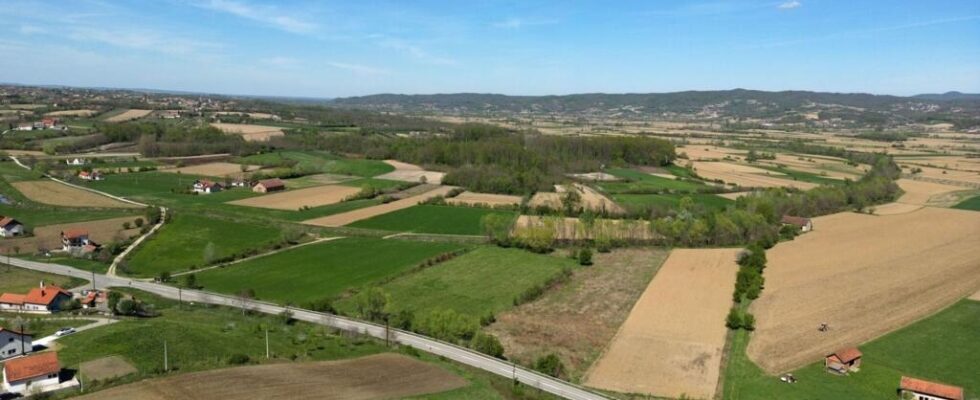Serbia’s highest court on Thursday, July 11, cleared the way for mining giant Rio Tinto to approve a lithium mining project. But the project’s future remains unclear, as the government had already suspended it in 2022, and the project has been the subject of several protests demanding its halt due to an impact on an agricultural area.
3 min
There decision taken in 2022 by the Serbian government to suspend the permit granted to the Australian group was “not neither in accordance with the Constitution nor with the law “, the Constitutional Court said in a statement published on its website. The institution adds, however, that it is up to the government ” to decide on the future of the project in question, in accordance with the Constitution and the law “.
The decision comes as several hundred activists gathered outside the Constitutional Court on Thursday, July 11, hoping that it will review the government’s decision.
The court’s decision was welcomed by Rio Tinto, while project director Chad Blewitt sought to reassure the public that the project met Serbian and European Union standards and could become a ” catalyst for the development of other industries and thousands of jobs “.
For Savo Manojlovic, one of the main opponents of the project, ” The Constitutional Court has issued a decision (…) in coordination with political authorities and Rio Tinto “, while the country’s leaders have recently been more open about this project and accused by opponents, along with the mining giant, of opacity.
Cancellation of permits in 2022 and new demonstrations in 2024
In January 2022, Belgrade revoked permits for the multi-billion dollar project that mining giant Rio Tinto hopes to develop in western Serbia. Then-Prime Minister Ana Brnabic had said that ” all permits, resolutions and decisions related to the Rio Tinto project [étaient] invalids “.
This decision followed Massive protests in Belgrade against the mine, with activists calling it a continuing environmental hazard in the agricultural region in the west of the country.
After stopping the work in 2022, Serbian President Aleksandar Vučić however announced to the Financial Times mid-June 2024 that if Rio Tinto presented good guarantees, ” The mine could open in 2028 “In this perspective, the mining giant has recently published an environmental impact report aimed at calming concerns, stating that the company would rely on a ” safe, reliable and proven technology “.
On June 25, 2024, Serbian Prime Minister Miloš Vučević explained to AFP that he would never let ” no one destroys rivers, fields, forests, mountains ” While adding that ” If Serbia has such economic potential, interesting for the whole European continent, then this can be a turning point not only economically, but also politically. “.
On June 28, more than a thousand opponents of the opening of this mine demonstrated, hoping for a new wave of protest two years after the first which put an end to the project.
Discovered in 2004, Jadar’s lithium reserves are among the largest in Europe. According to Rio Tinto, they could produce 58,000 tonnes of lithium carbonate annually, enough for 1.1 million vehicles or 17% of European electric vehicle production. Lithium, the ” White gold » essential for the manufacture of batteries, is crucial for the ecological transition.
